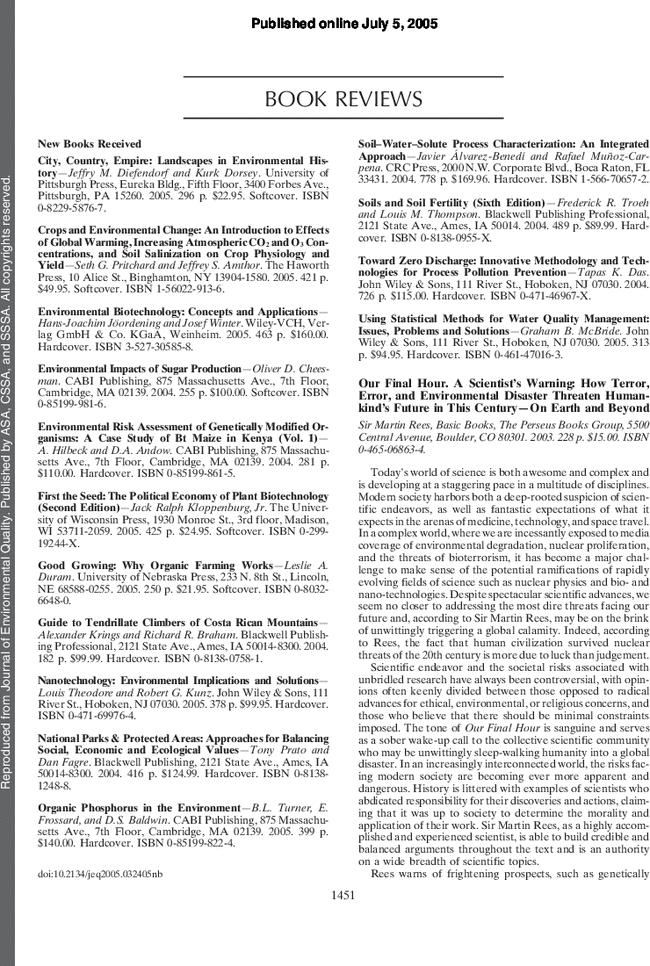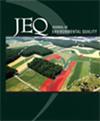木本植物对环境胁迫的适应与响应
IF 2.2
4区 环境科学与生态学
Q3 ENVIRONMENTAL SCIENCES
引用次数: 0
摘要
本文章由计算机程序翻译,如有差异,请以英文原文为准。

Adaptations and Responses of Woody Plants to Environmental Stresses
求助全文
通过发布文献求助,成功后即可免费获取论文全文。
去求助
来源期刊

Journal of environmental quality
环境科学-环境科学
CiteScore
4.90
自引率
8.30%
发文量
123
审稿时长
3 months
期刊介绍:
Articles in JEQ cover various aspects of anthropogenic impacts on the environment, including agricultural, terrestrial, atmospheric, and aquatic systems, with emphasis on the understanding of underlying processes. To be acceptable for consideration in JEQ, a manuscript must make a significant contribution to the advancement of knowledge or toward a better understanding of existing concepts. The study should define principles of broad applicability, be related to problems over a sizable geographic area, or be of potential interest to a representative number of scientists. Emphasis is given to the understanding of underlying processes rather than to monitoring.
Contributions are accepted from all disciplines for consideration by the editorial board. Manuscripts may be volunteered, invited, or coordinated as a special section or symposium.
 求助内容:
求助内容: 应助结果提醒方式:
应助结果提醒方式:


